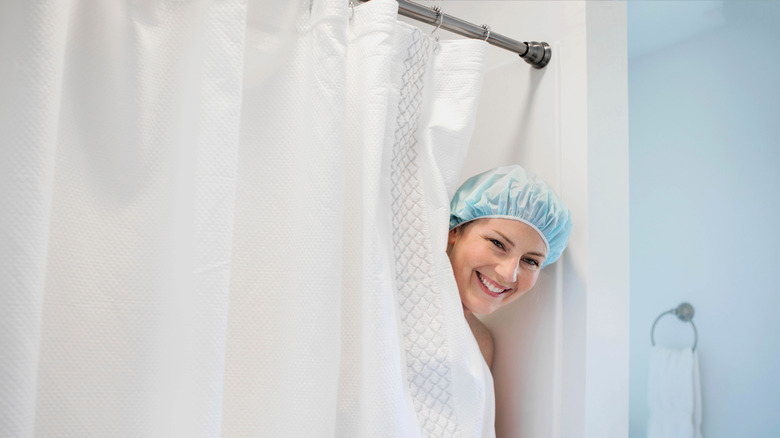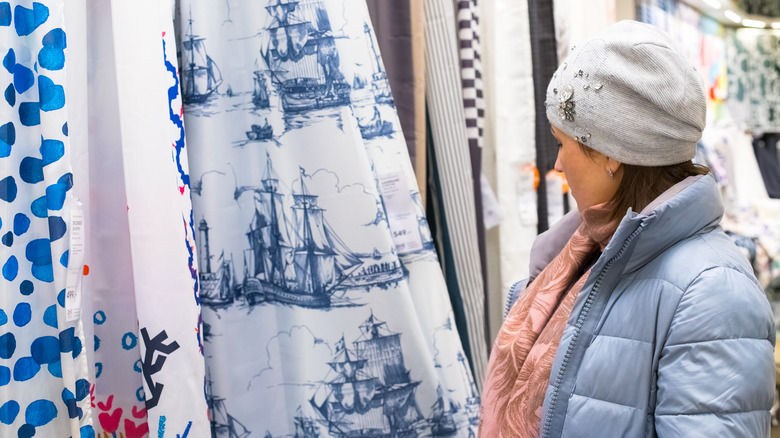Are PEVA Shower Curtains Safer Than PVC? Here's What We Know
Sometimes, doing the right thing for your and your family's health — and the environment — can take extra effort and expense. One of the reasons plastic is so plentiful and has countless uses is that it's durable and incredibly cheap. Saving money is important but unfortunately, the cheapest option isn't always the best. For example, if your shower curtains are made of PVC (polyvinyl chloride), you need to know that according to the EPA, it contains a gas called vinyl chloride, a human carcinogen responsible for this toxic plastic's cancer-causing reputation. This is certainly a good reason to ditch your shower curtain. And when you're ready to toss it, you might also need to do some deep research to see where — and if — PVC can be recycled near your area.
On the other hand, PEVA, which is short for polyethylene vinyl acetate, is a popular shower curtain material too, and has emerged as a direct competitor to PVC. It's promoted and sold as a much less toxic material — a healthier alternative. And yes, it's true that this plastic contains no vinyl chloride and so it isn't gassing your bathroom with a known carcinogen. But does being less harmful actually make it safe?
PVC, PEVA, and alternative shower curtain materials
PVC contains something called phthalates. Phthalates are several chemicals that make plastic more flexible and malleable. However, from a health perspective, these chemicals can cause organ damage in the lungs, liver, kidney, and reproductive system per Healthcare Without Harm. Because PEVA has no chlorine, it is touted as a safer alternative to PVC. Yet a study published in The Journal of Toxicological Sciences looked closely at PEVA's safety. They concluded that volatile organic compounds — which are harmful evaporated chemicals we can inhale — found in PEVA are toxic to living beings and that PEVA is an unsafe PVC alternative.
It's understandable to want a product that is 100% waterproof, inexpensive, convenient, and long-lasting like both PVC and PEVA shower curtains. But if you're weighing costs, there's potentially a higher price to pay long-term for going the cheap route. Consider organic, sustainable fabrics like cotton, linen, or hemp shower curtains as an investment that offers greater peace of mind. They're water resistant, not waterproof, and they do take longer to dry. For some options, Crate & Barrel has this Turkish cotton shower curtain, or The Citizenry has a fair trade, elegant linen shower curtain in neutral colors.

